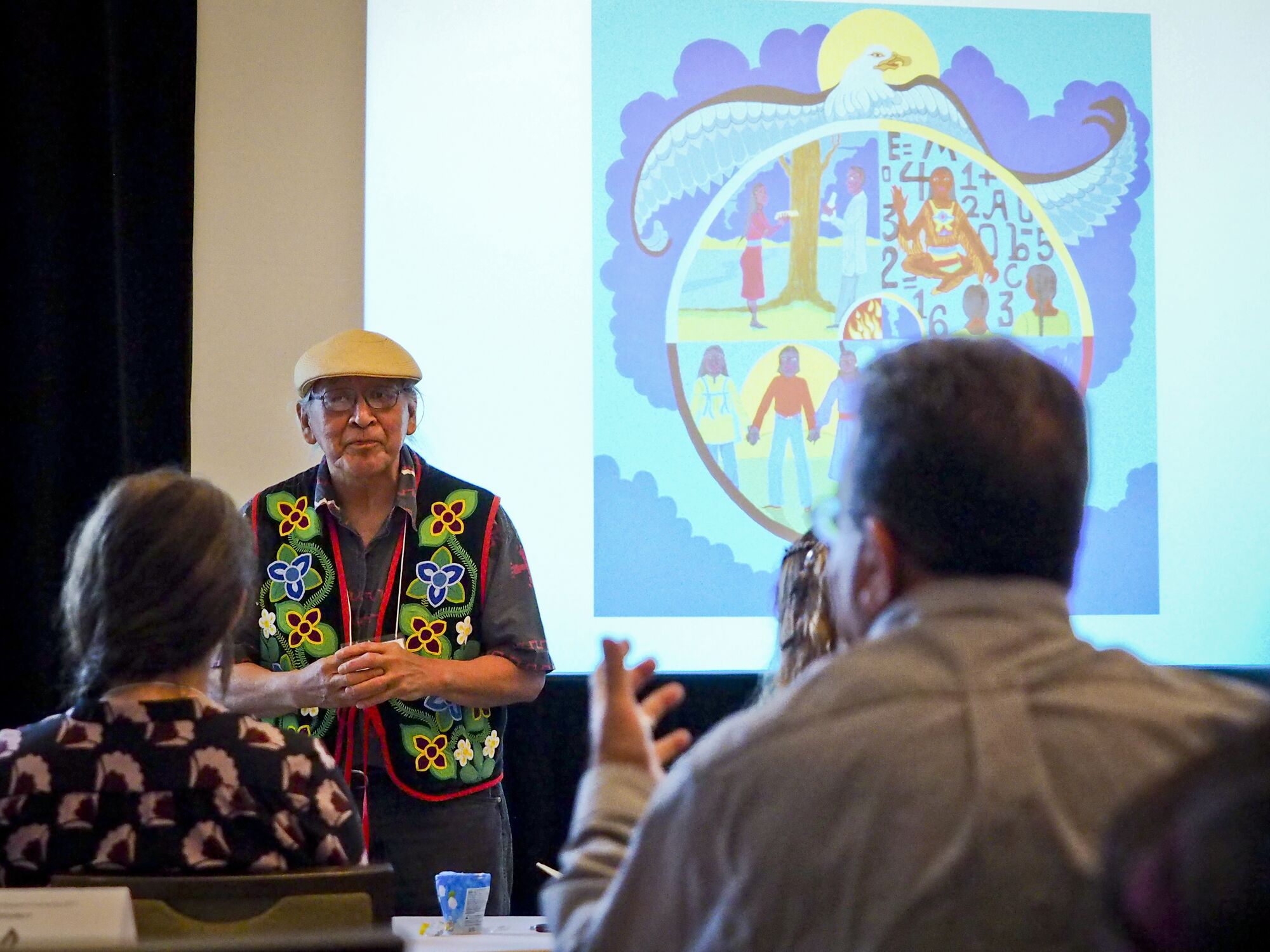
Dr. Nader Vadiee, Ph.D., professor at Southwestern Indian Polytechnic Institute, (foreground) asks a question during the “Place Based Curriculum Development (Science and Mathematics) The Role of Mathematics in the Ojibwe Art of Beadwork and Weaving” presentation by Dennis R. White, Lac Courte Oreilles Ojibwe Community College at the Tribal Colleges and Universities Research Conference on June 19, 2017 in Denver, Colo. photo: American Indian College Fund
The American Indian College Fund (the College Fund) gathered 72 higher education faculty and staff, early childhood educators, and student interns from across the nation in Denver, Colorado on June 19-20 for the 4th Annual Tribal College and University Faculty Research Conference to explore the role of indigenous knowledge in education curriculum.
The College Fund, which is committed to nurturing and sharing indigenous knowledge, marked the occasion by releasing the Tribal College and University Research Journal, Volume I, Issue 2 at the conference. The journal was first published in paper and electronic format by the College Fund in 2016 with financial support from the Lilly Endowment. The journal features current tribal college and university (TCU) faculty research and includes articles in a variety of fields including science, program development, and student success. It can be accessed along with previous editions on the College Fund’s website.
The conference drew attendees from TCUs and one mainstream university from as far away as Barrow, Alaska to the Southwest, Great Plains, and Midwest. Attendees discussed how culturally based learning benefits Native students and ways to restore Native knowledge in education from early childhood to higher education.
Conference sessions focused on ways to base classroom learning in Native teachings. This is especially important at TCUs, where the majority of attendees work and teach. TCUs were created by American Indian tribes to provide accessible higher education to Native communities. Studies have proven that culturally based learning increases students’ self-esteem, mental and physical well-being, and academic performance—all helping students to overcome challenges they face in their communities.
Session topics included integrating visual culture pedagogy into the classroom at TCUs, increasing student learning in the algebra classroom, using videos to enhance learning, the role of indigenous knowledge in increasing health and wellness in Native communities through the College Fund’s Restorative Teachings program funded by The W.K. Kellogg Foundation, developing curriculum based in place for science and mathematics, and a workshop focused on setting a course for flourishing and change. Attendees also enjoyed a cultural activity in which they learned to make a parfleche, an item made from stretched and decorated buffalo hide in the Plains tradition.
Both the conference and participant attendance were supported by generous grants from the Lilly Endowment, Inc., The W.K. Kellogg Foundation, The Andrew W. Mellon Foundation, AT&T, and Margaret A. Cargill Philanthropies.
Cheryl Crazy Bull, President and CEO of the American Indian College Fund, said, “Relationships are at the heart of indigenous knowledge and being able to convene in ways that allow expert sharing of information improves the quality of relationships among faculty and affirms their expertise. The College Fund is honored to provide a forum for faculty to be recognized for their contributions to new knowledge and to the restoration of traditional tribal knowledge.”
[metaslider id=10858]

